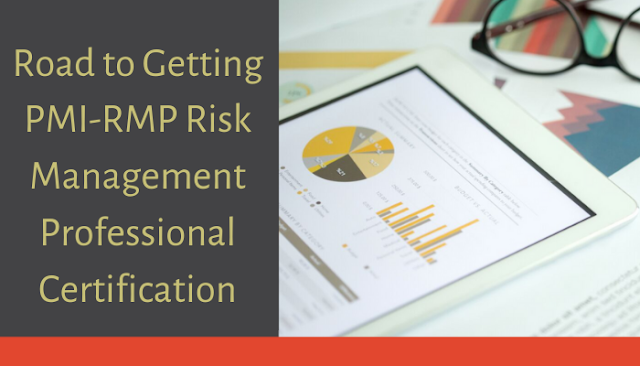Individuals who hold PMI’s Risk Management Professional PMI-RMP credential provide expertise in the specialized area of evaluating and identifying project risks and preparing plans to alleviate threats and gain on opportunities. This global credential recognizes individuals who strengthen and support project management by offering project risk management knowledge.
To be available for a PMI-RMP credential, you must meet particular guidelines that accurately measure experience, education, and professional experience. You also must agree to adhere to the PMI Code of Ethics and Professional Conduct and pass a severe multiple-choice examination that evaluates your skills in project management.
Who Should Apply?
Project team members with expertise in project risk management.
Steps to Getting a PMI-RMP Risk Management Professional Credential
- Create an online application or download an application and submit it via mail.
- If you meet the qualification requirements, you will receive an e-mail describing how to schedule the examination.
- Individuals who succeed a credential from PMI will be added to PMI's Online Credential Registry and may now use the credential designation after their name.
Eligibility
All project management experience submitted for the PMI-RMP must have been collected within the last five consecutive years before your application submission.
1. With a Bachelor’s Degree or the Global Equivalent:
- Applicants must have at least 3,000 hours spent in the specific area of risk management professional within the last five continuous years. Candidates must also have 30 contact hours of formal education in the technical scope of project risk management.
OR
2. Without a Bachelor’s Degree or the Global Equivalent:
- Aspirants must have at least 4,500 hours spent in the specific area of professional project risk management within the last five continuous years. Applicants must also have 40 contact hours of formal education in the technical scope of project risk management.
The PMI-RMP Credential Examination
This three and one/half hour examination comprises 170 multiple-choice questions consisting of 150 scored questions and 20 Pretest (unscored) questions. The official exam application is a Computer-based testing model; however, you can obtain paper-based testing under limited conditions if requested.
The PMI-RMP examination questions are developed and certified by global workgroups of project risk management practitioners and are monitored through psychometric analysis.
The Benefits of Getting PMI-RMP Certification
There are several benefits of getting PMI-RMP certification as below:
- It covers all fundamental aspects of Project Risk Management as it focuses on all the points from an exam perspective.
- PMI-RMP Certification helps you to demonstrate your skills to your employer, peers, and customers.
- It helps you to increase your salary.
- It aids you in finding more job opportunities by adding new credentials to your resume.
- It helps to improve your credibility.
- It helps you to understand your project management skills worldwide.
- It serves to enhance the skills and display your ability to handle challenging projects.
- It makes you officially accredited as a certified professional.
- It increases the possibilities of being internationally recognized.
Risk Management Professional PMI-RMP: Key Responsibilities
Job responsibilities vary time-to-time, from companies to companies and role-to-role. A host of job roles involve risk analyst, risk manager, risk management consultant, risk control supervisor, director of corporate risk management, and chief risk officer.
Even though overall responsibilities are listed below:
- Finding risk areas and complete them in the company to determine the risks.
- Checking and analyzing the organization’s transactions, internal reports, and financial information for potential risks.
- Keeping reports of essential risks and best practices.
- Drafting policies, actions, and control measures to address identified risks.
- We are evaluating the readiness of the internal control framework of the organization in dealing with risks.
- Training support workforce on risk management strategies and programs.
To accomplish these responsibilities, you must have competencies covering risk assessment, internal control, corporate governance, IT security, and soft skills such as communication, problem-solving, leadership, interpersonal, organizational, and many other transactional skills.
Risk Management Professional Salary and Career Growth
The salary of risk managers who hold Certification is 95000-135000 USD, while for non-certified, it is 72000 to 115000 USD.
Since it is a hot job, the career prospects are high for risk management professionals. They can step up the career ladder in a few years and get a lucrative payout.
The demand for risk managers has seen momentum after the COVID-19 outbreak. Many organizations are caught under severe financial and organizational risks to run their operations by complying with the health safety guidelines. However, skilled risk directors are less to fill the demand.






